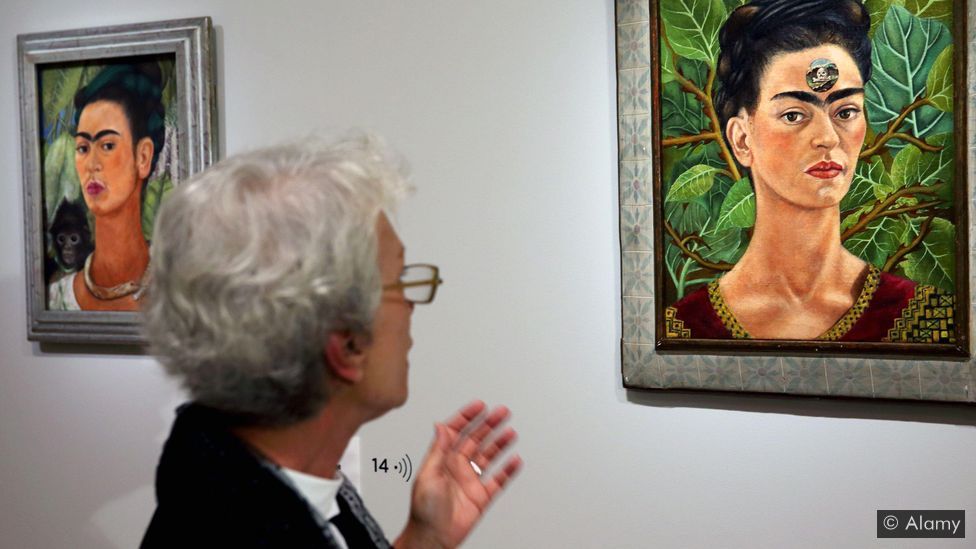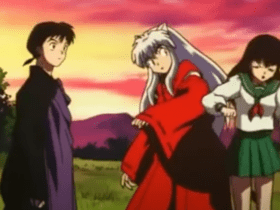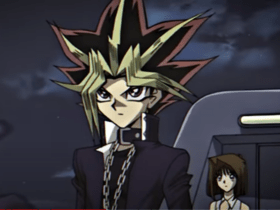The phrase dying is just not pronounced in New York, in Paris, in London, as a result of it burns the lips,” wrote the Mexican essayist and poet Octavio Paz within the 1950s. However for his fellow countryman – who talks about it and celebrates it within the annual Day of the Useless pageant – “it’s certainly one of his favorite toys and his most steadfast love.”
In all probability, this was an exaggeration; even again then, nevertheless, it raises the query of the function that dying performs within the artwork of residing. Western tradition has developed several mechanisms for shielding us from the fact of our mortality. The promoting business tells us that we will stay ceaselessly younger, we keep away from talking about dying with our youngsters, and we shunt the aged away in care properties out of sight and out of thoughts.
Frida Kahlo painted her 1943 self-portrait Pondering About Demise, whereas she was bedridden within flawed health well-being; it has been interpreted as viewing dying as a path to a different type of life.
We should study to confront the fear of dying and develop the braveness to discover how the consciousness of our mortality will help us navigate now. Consider Frida Kahlo’s self-portrait Pondering About Demise, which has a macabre cranium plastered on her brow. Or think about the pithy knowledge of Albert Camus: “Come to phrases with dying. After that, something is feasible.” However, coming to phrases with dying is simpler stated than achieved. One of many secrets and techniques for doing so is not to spend hours considering visions of the Grim Reaper, however, to reimagine our relationship with time itself. Listed here are three concepts for doing so that provide the surprising prospect of existential sustenance.
In Leo Tolstoy’s 1886 novella, The Demise of Ivan Ilyich, a St Petersburg judicial prosecutor who has devoted his profession to rising via the authorized ranks and serving to his household obtain a decent place in bourgeois society lies on his deathbed, aged merely 45, questioning if he has wasted his life on superficial pursuits. “What if my complete life has been mistaken?” he displays bitterly.
If we are undertaking ourselves to the tip of our life, how would we feel about it trying again?
The story gives a helpful thought experiment. If we are undertaking ourselves to the tip of our life, once we are mendacity on our deathbed, how would we feel about it trying again? Would we feel pleased with our achievements? Would we think that we had sucked the marrow from life? Or may we, like Ivan Ilyich, be stuffed with remorse? The purpose is that such reflections can alter how we select to behave within the right here and now. My favorite method of creating this temporal journey to the tip of our lives is a visioning train I name ‘The feast of the afterlife.’
Think about yourself at a cocktail party within the afterlife. Additionally, the current is all the opposite ‘yous’ who you possibly can have been if you had made entirely different selections. The you who studied more challenging for exams. The you who walked out in your first job and adopted your dream. The you who turned an alcoholic and one other you who practically died in an automotive accident. The you who put extra time into making your marriage work.
You then go searching at these different selves. A few of them are spectacular, whereas others appear smug and annoying. Several make you are feeling insufficient and lazy. So which ones are you curious to fulfill and speak to? Which might you slightly keep away from? Which do you envy? Out of those many yous, is there one who you’ll barely be – or turn into?
The nice chain of life
A second strategy to make sense of our existence is to attract the knowledge of indigenous cultures whose worldviews dissolve the boundaries between life and death, providing a transcendence. There may be an inspiring Māori idea often called whakapapa, which is their phrase for ‘lineage’ or ‘family tree.’ It’s the concept that we’re all linked in an essential chain of life that hyperlinks the current again to the generations of the previous and ahead to all of the ages happening in the long run.
It permits us to recognize that the residing, the useless, and the unborn are all right here within the room with us. And we have to respect their pursuits as a lot as our personal
It so occurs that the sunshine is shining on this second, right here and now, and the concept of whakapapa helps us shine the sunshine extra broadly so that we will see everybody all through the panorama of time. It permits us to recognize that the residing, the useless, and the unborn are all right here within the room with us. And we have to respect their pursuits as a lot as our personal. Making this imaginative leap is challenging, particularly for us immersed in a too individualistic Western client tradition.
However, we will start to take action with an assist from one other thought experiment that entails journeying via time. Assume a kid you recognize and care about – maybe a godchild, a niece, or certainly one of your youngsters or grandchildren. Now think about them at their 90th party, surrounded by household and buddies. Image their aged face, have a look at what is occurring on this planet exterior the window. Now, think about somebody coming over and locations a tiny child into their arms: it’s their first great-grandchild. They give the impression of being into the newborn’s eyes and ask themselves, “What would this youngster survive and thrive into the years and many years forward?”
Sit with that thought for a second. Then recognize that this tiny child might be alive properly into the 22nd Century. Their future isn’t science fiction. It’s an intimate household truth, merely a few steps away from your individual life. If we care about that child’s life, we have to care about all life: all of the folks it will want for help; the air it will breathe; the entire net of life.
This thought experiment will help us transcend the bounds of our lifespan and contact the knowledge of whakapapa. We’re all a part of the excellent chain of life. And by recognizing our place in it, we begin extending our sense of what constitutes ‘the now,’ shifting from a now of seconds and minutes and hours to the extent of many years, centuries, and even millennia. A now that provides us a way of accountability for the legacies we go away for tomorrow’s generations, whereas respecting the previous ages.
Journeys into deep time
We can additionally rethink our relationship with dying by taking the attitude of ‘deep time,’ recognizing that humankind, and our personal lives, are simply an eyeblink within the cosmic story. As the author, John McPhee, put it, “Think about the Earth’s historical past because of the outdated measure of the English yard, the gap from the king’s nostrils to the tip of his outstretched hand. One strike of a nail file on his center finger erases human historical past.”
However, keep in mind that simply as there may be deep time behind us, there may be additional deep time forward. Any creatures which may nonetheless exist in 5 billion years when our solar dies can be as utterly different from us as we’re from the primary single-celled microorganism.
Deep time allows us to know our destructive potential: in only two centuries of business civilization, with our ecological blindness and lethal applied sciences, we have now endangered a world that took billions of years to evolve. Don’t we now have accountability to protect the Earth’s life-giving potential for the generations to return? At the same time, situating ourselves within the grand expanse of time helps put our mortality in perspective. We’re only a passing second in a far greater, more extended narrative.
We can get there with the assistance of visionary science fiction writers like NK Jemisin or Ursula Le Guin, who allow our minds to journey throughout the eons.
Whereas deep time is elusive, its wonders are inside our grasp. We can get there with the assistance of visionary science fiction writers like NK Jemisin or Ursula Le Guin, who allow our minds to journey throughout the eons. Or strive to look for fossils and holding a 200-million-year-old ammonite in your hand. Or stare upon stars whose mild left their supply earlier than people even advanced. Or make a pilgrimage to a historic tree and, as novelist Richard Powers expressed it so superbly, expertise life “on the pace of wooden.”
As we busily swipe our telephones and click on the ‘Purchase Now’ button, allow us to pause a second and open our imaginations to an extent now. That’s how we start the journey past dying. That’s how we turn into good ancestors.















Leave a Reply